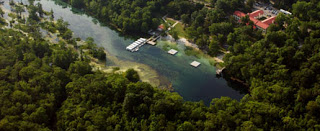- Home
- HINDUISM SCIENCE IN SCRIPTURES
- HINDU SCRIPTURES
- New world encyclopedia
- BHARAT
- ASTROPHYSICS
- CHRISTIANITY
- HEALTH
- NATURAL
- UNIVERSE CREATION
- HINDUISM
- INDIA
- 1000 year old hindu temple in indonesia
- 33 crore gods
- ANCIENT AEROPLANE
- BHAGWAT PURAN
- BUDDHA
- CREATION OF UNIVERSE
- DHARMA
- dwarika
- EMBRYO DEVELOPMENT
- HINDU DHARMA
- HINDUISM AND COSMOLOGY
- LEARN SANSKRIT FREE
- HINDUISM
- Ayurveda in Hindi
- AMAR KOSH-Download free.
- Vedas,Upnishad decoded
- Surya Siddhant
- Book cheapest airline, hotel, car
- Naga Sadhus Defeated Aurangzeb Defending Kashi Vishwanath in 1664
- NewChick
SANSKRIT CONNECTION – TALLAHASSE & WAKULLA SPRINGS, FLORIDA Tallahassee, Florida. Home to one of the largest and deepest freshwater springs in the world – the Wakulla Springs.
‘Wakulla’ is a Timicuan (Native American) word. Wikipedia says, “‘Wakula’ may contain the word ‘kala’ which signified a ‘spring of water’ in some Native American Indian dialects”. This is where the Sanskrit connecton is evident.

Lets look at the word through the Sanskrit lense. In Sanskrit ‘va’ (व) means water. ‘Kulya’ (कूल्या) means ‘stream’, ‘canal’ or ‘a water body’. ‘Kulini’ (कूलिनी) means a ‘river’. ‘Vakulya’ would mean ‘water-body’ or ‘water canal’ or plain ‘river’ in Sanskrit.
Tallahassee has a similar meaning. In Sanskrit, ‘tala’ (ताल) again means a ‘water body’ and ‘talak’ (तलक) means ‘spring’ or ‘pond’. ‘Ulhas’ (उल्लस्) means ‘joyful’, ’cause movement’, ‘jump’, ‘shine forth’ or ‘come forth’. Another cognate ‘hasa’ (हास) means ‘joyful’, ‘frolic’, ‘mirth’ or ‘dazzling whiteness’. Tallahasee, therefore means ‘a place where the ‘water springs emerge’ or ‘white water springs emerge”.
Even though Tallahassee is generally translated as ‘Old Town’, it is interesting that the water-springs area of Calistoga in California, which was earlier known as ‘Tu-la-huasi’ is translated from Native American as ‘Place of Healthy Springs’.
If we take the translation cue from ‘Tu-la-huasi’, it just maybe that the Sanskrit translation of ‘Tallahasee’, as the place from where ‘water springs emerge’, is closer to the truth.
Posted by Neeta Raina
Share this:
- Share on Pinterest (Opens in new window) Pinterest
- Share on Pocket (Opens in new window) Pocket
- Share on Reddit (Opens in new window) Reddit
- Share on Myspace (Opens in new window) Myspace
- Share on AddToAny (Opens in new window) AddToAny
- Email a link to a friend (Opens in new window) Email
- Share on Tumblr (Opens in new window) Tumblr
- Share on Telegram (Opens in new window) Telegram
- Share on WhatsApp (Opens in new window) WhatsApp
- Print (Opens in new window) Print
- Share on LinkedIn (Opens in new window) LinkedIn
- Share on X (Opens in new window) X
- Share on Facebook (Opens in new window) Facebook
Related
One comment on “SANSKRIT CONNECTION – TALLAHASSE & WAKULLA SPRINGS, FLORIDA Tallahassee, Florida. Home to one of the largest and deepest freshwater springs in the world – the Wakulla Springs.”
Leave a reply to sharonstjoan Cancel reply
This site uses Akismet to reduce spam. Learn how your comment data is processed.
Information
This entry was posted on June 26, 2016 by Sanatan Dharm and Hinduism in HINDUISM SCIENCE, sanskrit, sanskrit connection of tallahase, SANSKRITI and tagged Sanskrit, sanskrit connection of tallahasse, tallahasse and indian connection.Shortlink
https://wp.me/p3WpCN-1kWThis slideshow requires JavaScript.
Archives
Recent Posts
- The Lineage of Kaushik: From Sage to Maratha Royals April 11, 2025
- Shiva Strotra by Ravan February 21, 2025
- Time calculation in Narsing Puran and Padm Puran and Srimad Bhagvatum December 22, 2024
- Upanishad in brief November 24, 2024
- Shri Parvati Mangal Paath -By Tulsidas November 21, 2024
- Brahm Gupta September 30, 2024
- Mahashivaratri 2024 March 9, 2024
- Maharshi Bhrigu Rishi, the father of the invention of telescope. September 9, 2023
- गोपनीय चमत्कारी गायत्री मंत्र के 13 गुप्त उपाय | गायत्री मंत्र का अर्थ September 2, 2023
- Jamboo Dweep August 19, 2023
- Sri Ramchanda’s exile path-Ramayan July 31, 2023
- MahaVishnu, Hiranyagarbha, Parmatma July 22, 2023
- पृथ्वीस्तोत्र || Prithvi Stotra June 29, 2023
- Congress Leader Rahul Gandhi’s Links to George Soros, Jamaat-e-Islami’- Anti-India links are exposed- June 29, 2023
BHUPALI RAAG
SANATAN DHARMA
Ancient Indian Litterature
HINDUISM
SANSKRIT
- Ashtaadhyaayi part 2
- Ashtaadhyaayi Part 3 in Hindi
- Brihad Dhatu Rupavali
- Download Bhrigu Sutras.pdf
- DOWNLOAD SANSKRIT FREE
- First book of Sanskrit-elementary
- First book of Sanskrit-elementary
- Higher sanskrit grammer
- kashika Nyasa Padamanjari—Sutrapatha Dhatupatha Ganapatha
- Panin Ashtaadhyaayi SootrapaathahYatibodhasahitah
- Panini Ashtadhyayi/mahabhasya – Sanskrit part 2
- Panini astadhyayi part 2
- Panini Mahabhashya
- Samskrita Vakya Prabodh – Swami Dayanand
- Samskrita Vakya Prabodh- Swami Dayanand Saraswati
- sanskrit daily conversation
- Sanskrit dictionary in 3 vol
- Sanskrit elementary -second book.
SANSKRIT LEARNING FREE
- Speak Sanskrit easy way- audio download
- Vachaspatya sanskrit
- Vedic Introduction
VEDAS
HITS
- 1,771,853 9
 SANATAN DHARMA
SANATAN DHARMA
- Vishpala- Ancient medical procedure in India
- Lost Horizon, about the Lost Kingdom of Shangri-La’ पृथ्वी का अद्भूत और दिव्य स्थान-#शंगरीला_घाटी
- Why baby live in womb for 9 months and 9 days
- Ram Setu- a marvel of ancient engineering
- Science in Hinduism
- मुरुदेश्वर, कर्नाटक, Murudeswar, Karnatka, India- Highest Shiva in world
- MUSICAL STEPS IN AIRAVATESHWARA MANDIR; AN EXTRAORDINARY EXAMPLE OF SHILPA SHASTRA
- Untitled
- Sun temple of Multan
- Varahamihir, who predicted water in Mars
 Ancient Indian Temples
Ancient Indian Temples
- शिव का अदृश्यलोक: साल में तीन महीने के लिए प्रकट होने वाला एक मंदिर | KU...
- Surya Temple - Kalkere, Haveri, Karnataka, India- Beutiful sculpture in small villege
- God Ram had advanced Bow and missile as arrow-decoded-
- Sri Lakshmi Narasimha Temple, Javagal – A Forgotten Wonder
- Why baby live in womb for 9 months and 9 days
- बृहदेश्वर मंदिर, Brihdeswar Temple in Thanjavur,Tamilnadu
- Baphuon Temple -Splendid Shiva Temple in Cambodia, earlier Hindu Kingdom
- Death of Hindu
- Untitled
- Sphinx temple of Baluchistan
Social
Tags
#ZERO ANCIENT AEROPLANE ancient astronauts ANCIENT INDIA ancient Indian ancient science ASTROLOGY ayurveda BALMIKI RAMAYAN BHAGVATGITA BHAGVAT PURAN BHARAT BIBLE CHRISTIAN INVASION IN INDIA CHRISTIANITY CHRISTMAS CONGRESS CREATION OF UNIVERSE DECODING HINDUISM EARTH GITA GOD VISHNU HINDU DHARMA HINDUISM HINDUISM AND COSMOLOGY HINDUISM IN EGYPT HINDUISM SCRIPTURES hindu scriptures history HISTORY OF INDIA HISTORY OF INDIA/BHARAT INDIA ISLAM Islamic Destruction of Hindu Temples. islamic terrorism ISLAMIST KRISHNA KUNDALINI Kundalini (कुण्डलिनी) Lord Shiva Lord Vishnu MAHABHARAT mayan MUSLIM OM origin of universe QURAN rajput RAM RAMAYAN rebirth REINCARNATION RELIGION RIGVED sanatan dharma Sanskrit SCIENCE SCIENCE AND VEDAS SCIENCE IN HINDUISM SCRIPTURES SHIVA SOUL SRIMAD-BHAGVAT PURAN TAJ MAHAL talpade TAMILS TIME IN VEDAS UNIVERSE UPNISHAD VEDAS vedic cosmology vedic culture VEDIC MATHMATICS Vedic science vedic world VIMANA
Donations
If you like, donation button is here.
$5.00
https://www.interserver.net/r/711919
This slideshow requires JavaScript.
Recent Posts
- The Lineage of Kaushik: From Sage to Maratha Royals
- Shiva Strotra by Ravan
- Time calculation in Narsing Puran and Padm Puran and Srimad Bhagvatum
- Upanishad in brief
- Shri Parvati Mangal Paath -By Tulsidas
- Brahm Gupta
- Mahashivaratri 2024
- Maharshi Bhrigu Rishi, the father of the invention of telescope.
- गोपनीय चमत्कारी गायत्री मंत्र के 13 गुप्त उपाय | गायत्री मंत्र का अर्थ
- Jamboo Dweep
- Sri Ramchanda’s exile path-Ramayan
- MahaVishnu, Hiranyagarbha, Parmatma
- पृथ्वीस्तोत्र || Prithvi Stotra
- Congress Leader Rahul Gandhi’s Links to George Soros, Jamaat-e-Islami’- Anti-India links are exposed-
- Asta Siddhi-8 super power of Hanuman ji
- Vijñāna-bhairava-tantra
- Gorakhnath mantras
- Future Badrinath and God Narsimha of Joshimath connection
- Ayodhya and Ram in Atharved
- Brahm Sutra -Part 3
 Vedic science
Vedic science
- Vishpala- Ancient medical procedure in India
- Lost Horizon, about the Lost Kingdom of Shangri-La’ पृथ्वी का अद्भूत और दिव्य स्थान-#शंगरीला_घाटी
- Why baby live in womb for 9 months and 9 days
- Ram Setu- a marvel of ancient engineering
- Science in Hinduism
- मुरुदेश्वर, कर्नाटक, Murudeswar, Karnatka, India- Highest Shiva in world
- MUSICAL STEPS IN AIRAVATESHWARA MANDIR; AN EXTRAORDINARY EXAMPLE OF SHILPA SHASTRA
- Untitled
- Sun temple of Multan
- Varahamihir, who predicted water in Mars
Older posts
- April 2025
- February 2025
- December 2024
- November 2024
- September 2024
- March 2024
- September 2023
- August 2023
- July 2023
- June 2023
- April 2023
- March 2023
- February 2023
- January 2023
- October 2022
- August 2022
- July 2022
- May 2022
- March 2022
- February 2022
- January 2022
- November 2021
- October 2021
- September 2021
- August 2021
- July 2021
- June 2021
- December 2020
- November 2020
- July 2020
- June 2020
- May 2020
- February 2020
- December 2019
- October 2019
- September 2019
- August 2019
- July 2019
- May 2019
- April 2019
- March 2019
- February 2019
- January 2019
- December 2018
- November 2018
- October 2018
- July 2018
- May 2018
- April 2018
- March 2018
- February 2018
- January 2018
- December 2017
- November 2017
- October 2017
- September 2017
- August 2017
- July 2017
- June 2017
- May 2017
- March 2017
- January 2017
- December 2016
- November 2016
- October 2016
- September 2016
- August 2016
- July 2016
- June 2016
- May 2016
- April 2016
- March 2016
- February 2016
- January 2016
- December 2015
- November 2015
- October 2015
- September 2015
- August 2015
- July 2015
- June 2015
- May 2015
- April 2015
- March 2015
- February 2015
- January 2015
- December 2014
- November 2014
- October 2014
- September 2014
- August 2014
- July 2014
- June 2014
- May 2014
- April 2014
- March 2014
- February 2014
- January 2014
- December 2013
- November 2013
- September 2013
I'm just starting out; leave me a comment or a like :)








Reblogged this on Voices and Visions.
LikeLike